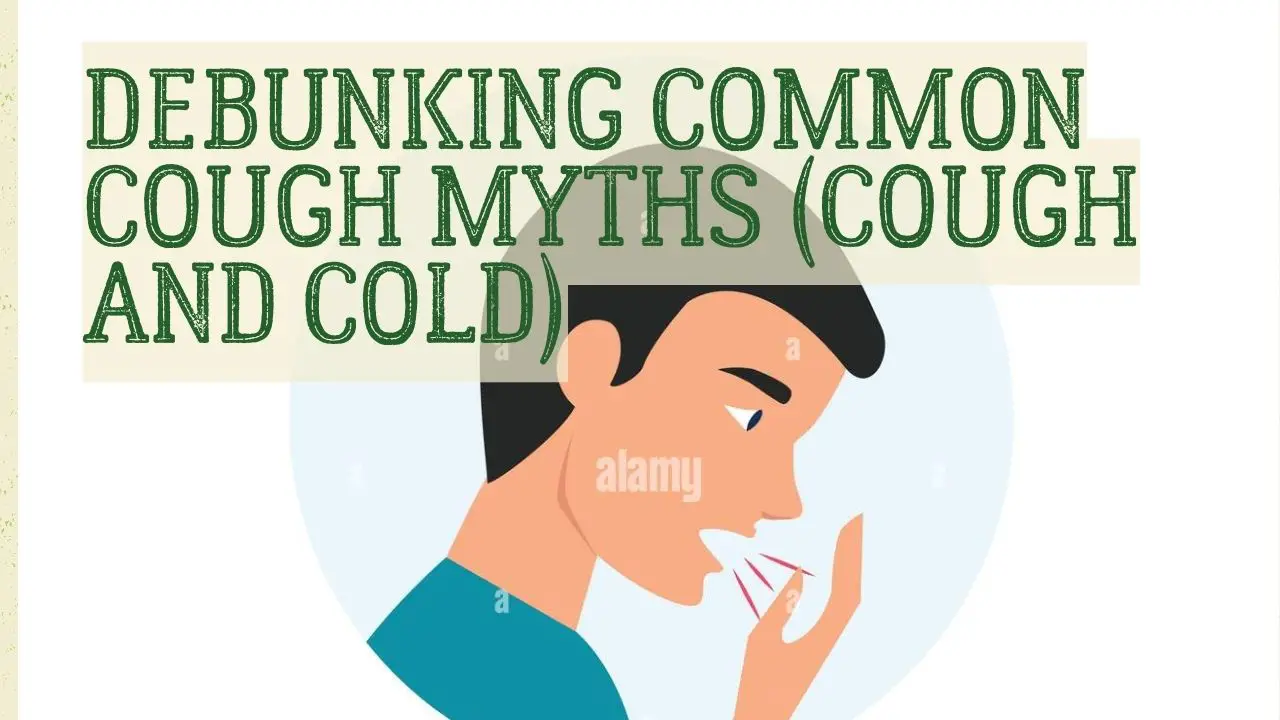Physical Address
304 North Cardinal St.
Dorchester Center, MA 02124
Physical Address
304 North Cardinal St.
Dorchester Center, MA 02124


Cough is a problem across all geographic and demographic boundaries, affecting individuals worldwide.
Its prevalence is such that it stands as one of the most common reasons for medical consultations.
Whether caused by viral infections, environmental factors, or chronic conditions, coughs manifest in diverse forms, impacting individuals of all ages. Decreased productivity and strained healthcare resources are all consequences of this symptom.
In this article, we will debunk the common cough myths and talk about their facts.
Fact
Contrary to myth, a cough doesn't always signal a serious health problem.
While persistent or severe coughs should be taken seriously, many are the result of common factors like viral infections, irritants, or allergies. Coughing is often the body's natural defense, clearing the airways of irritants and excess mucus. It's crucial to assess the context, duration, and accompanying symptoms before jumping to conclusions.
Understanding that coughs can stem from various causes enables individuals to distinguish between normal occurrences and instances requiring medical attention. This promotes a well-informed and balanced approach to dealing with this common yet diverse symptom.

Fact
Cough medications are not always the best treatment, despite what the general public believes. While they can offer relief by reducing cough symptoms, they don't get to the root of the problem.
These drugs' efficacy varies, and they might not be beneficial for all kinds of coughs.
There are many causes of inflammation, including infections and irritants. For long-term relief, it is important to find out where the problem is coming from. Also, overuse of cough medicine increases the chances of side effects and can hide potentially dangerous infections that require appropriate treatment
Effective personal care requires a correct approach taking into account the specific symptoms and causes of inflammation.
Fact
Antibiotics are not a universal cure for all types of coughs. They are effective against bacterial infections, but many common coughs are viral in nature. Using antibiotics is not a good idea, especially for viral infections.
A thorough diagnosis by a physician is necessary to determine whether antibiotics are needed.
Understanding the inherent limitations of antimicrobial agents improves ethical use, preserves efficacy in infectious diseases, and ensures comprehensive treatment corresponds to addressing the specific causes of inflammation, resulting in effective and sustainable respiratory health
Fact
Natural remedies can be effective in reducing coughing. Taking honey, ginger, and steam showed calming properties. Although not universally applicable, evidence supports the effectiveness of some natural treatments.
Adding these ingredients to cough relief not only provides relief but also provides a holistic approach. Understanding and accepting the scientific basis for natural remedies allows individuals to consider them as ways to help, and provides a comprehensive approach to prevent it.

Fact
A persistent cough should not be ignored. While some coughs may be harmless, a persistent cough lasting more than three weeks can be indicative of underlying health issues.
Ignoring such a symptom may delay the diagnosis and treatment of conditions like asthma, chronic bronchitis, or even more serious respiratory problems.
Seeking timely medical advice for a persistent cough is crucial for proper evaluation, diagnosis, and intervention.

In conclusion, debunking prevailing misconceptions related to coughs is crucial for well-informed health management. Acknowledging the diverse causes and varying severity of coughs allows individuals to embrace a nuanced approach. By challenging the belief that every cough is alarming or that specific remedies universally apply, we equip ourselves to make informed choices. Underscoring the significance of professional diagnosis, understanding the limitations of medications, and recognizing the effectiveness of evidence-supported natural remedies all contribute to a comprehensive strategy. The correction of these myths ensures a more accurate, conscientious, and individualized method in addressing coughs, ultimately fostering improved respiratory health and overall well-being.